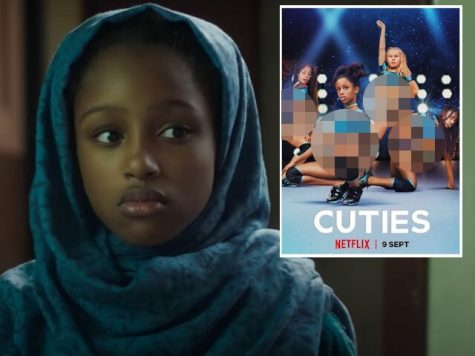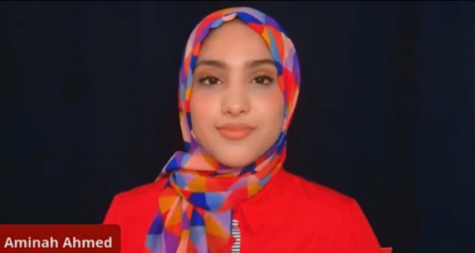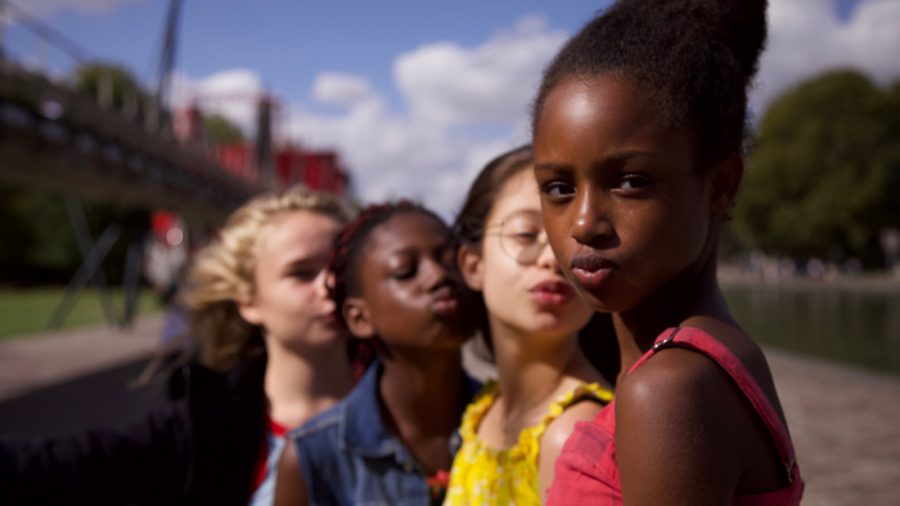The problem with “Cuties,” Netflix’s new coming of age film
11 year-old girls are overly-sexualized in the newly released film “Cuties.”
Every time a movie is released that claims to represent Muslim women, I send out a silent prayer that this time it won’t be a blatant misrepresentation. Muslim women have become far too familiar with the tropes of a Muslim girl whose sole identity is her hijab which she takes off somewhere along the film to “liberate herself” or another shy, Muslim girl who is again “liberated” by her popular, white male savior. All of these unfairly play into the harmful and negative stereotypes that many “hijabis” are forced to deal with on a daily basis. But it can’t get worse than a portrayal of an oppressed damsel in distress. Right?
The French film “Cuties” (“Mignonnes”), an award winner at this year’s Sundance Film Festival that is now appearing on Netflix, is a film that explores the ways that innocent young girls act out sexually. And while the filmmakers have said the film is meant to show the underworld of these expectations, it does not do justice for the perception of Muslim girls.
The film is set in modern-day France, and it tells the story of a young Muslim girl named Amy (Fathia Youssouf), who comes from a strict family and seeks acceptance with the “cuties,” the popular girl group at school who are shown to exhibit precocious sexual curiosity sparked mainly in dancing. For instance, immersed in her double life, Amy hides under her hijab at a prayer congregation to watch adult women perform a provocative dance.
“The cuties giggle at pornography in the school toilets; they strut, pout, and make crude sexual comments in order to attract the attention of older boys; they dress in skimpy and provocative clothing,” writes Madeleine Kearns, staff writer at National Review.
The issue is these characters are children who are being openly sexualized. “Cuties” depicts 11 year-old girls dressed and dancing like strippers. Elected officials, journalists, and influencers all complained that the streaming service was “basically distributing child pornography.”
In the context of Muslim girls being misrepresented, a movie depicting yet another young Muslim girl who is not only oppressed but also sexualized is absolutely absurd. A petition calling for Netflix viewers to cancel their subscription gained 600,000 signatories, spreading wide on social media platforms such as Twitter and Instagram.

Samir Mirza, senior, said the movie seemed to glorify pedophilia by displaying young girls dancing provocatively.
“Misrepresentation is a pretty big problem in media and gives people skewed perceptions of reality, and while I’m lucky enough to not be extremely impacted by it, it is a big problem for lots of different groups of people,” Mirza said.
I would rather have no representation than representation that sexualizes children, including a Muslim girl who is already portrayed as confused, oppressed, and in need of liberation by the mainstream media. While the girls’ inappropriate behavior is not framed as liberation as much as a cry for help, it doesn’t justify the fact that they used minors to portray this, specifically a Muslim girl.
“Whatever their artistic intentions, in making a social commentary about the sexualization of children, the filmmakers undeniably sexualized children,” Kearns said.
The filmmakers were perplexed at the outcry, maintaining that “‘Cuties’ is a social commentary against the sexualization of young children,” but if that was so, then they could have cast adult actors to resemble young girls instead of sexualizing minors. Bringing in the overly used description of an oppressed Muslim girl looking for acceptance rather than depicting one of the many proud “hijabis” who view their hijab as liberation is exploitive and Islamaphobic.
“We must allow for more Muslim directors to create movies that accurately represent Islam because negative impacts of misrepresentation include increased Islamophobia, which can pertain to me, a woman who wears the hijab and hears concerns from people who view it as ‘oppressive,’’’ said Iqra Mohammed, junior.
As we grow increasingly accustomed to the unfortunate and deliberate misrepresentation of Islam and Muslims, I hope we understand the implications they have for us open, proud, and visible Muslim women who do not need to look outside of their faith to find liberation.

Aminah Ahmed, a junior is a young dynamic activist and public speaker. She is the host of the talk show NextGen on Apple TV, Roku TV, and Amazon Fire TV....













